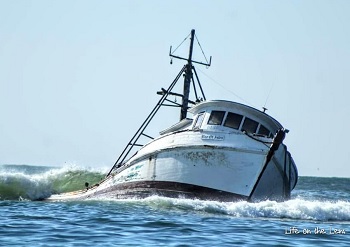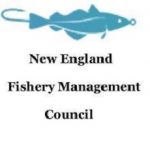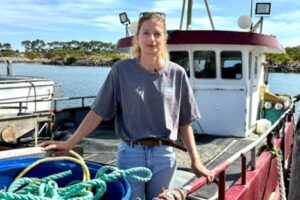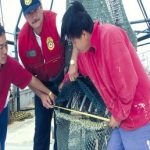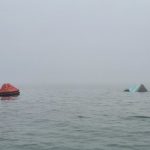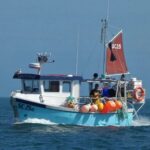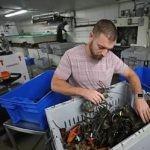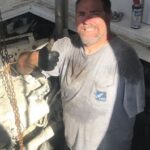Monthly Archives: May 2020
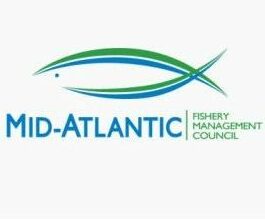
Just in! Reminder: Black Sea Bass Commercial State Allocation Amendment Webinars – Today @ 2:00 p.m. and Thursday @ 6:00 p.m.
Reminder: Mid-Atlantic Council to Hold Two Scoping Webinars for Black Sea Bass Commercial State Allocation Amendment, Monday, May 11, 2:00 – 3:30 p.m. Thursday, May 14, 6:00 – 7:30 p.m. The Mid-Atlantic Fishery Management Council will hold two scoping webinars to gather public input on a management action to consider potential modifications to the allocations of the black sea bass commercial quota among the states of Maine through North Carolina. Learn more about this action in the scoping announcement or at the links below. Links, and info. >click to read< 13:35

Coast Guard searching for a fisherman in the water offshore Marsh Island, Louisiana
The Coast Guard is searching for a person in the water offshore Marsh Island, Louisiana, Monday. Watchstanders at Coast Guard Sector New Orleans received a report at about 3 a.m. that a 52-year-old male was missing from the crew of commercial fishing vessel Guiding Light 3, approximately 18 nautical miles south of Marsh Island, Louisiana. He is presumed to have fallen overboard. Involved in the search: Coast Guard Cutter Skipjack, Coast Guard Air Station New Orleans MH-65 Dolphin Helicopter aircrew, Coast Guard Aviation Training Center Mobile HC-144 Ocean Sentry aircrew -USCG- U.S. Coast Guard 8th District Heartland Contact: 8th District Public Affairs, Office: (504) 671-2020 ,After Hours: (618) 225-9008
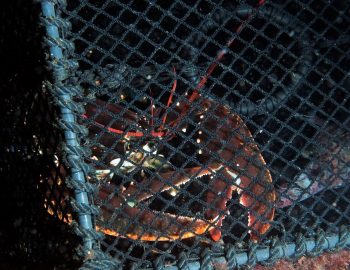
Hybridization – New test identifies lobster hybrids
American lobsters have occasionally escaped or been released into European waters after being imported for the seafood market. Experts have long feared they could threaten European lobsters by introducing disease or establishing as an invasive species. Hybridization – when a “pure” species is threatened at a genetic level via interbreeding with a different but related species, had been less of a concern because lab studies suggested European and American lobsters were reluctant to mate. However, when an American lobster female was found bearing eggs in a fjord in Sweden, University of Exeter researchers tested the offspring and found they were “clearly distinct” from both European and American lobsters. >click to read< 11:42
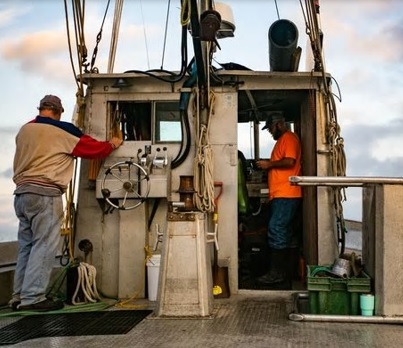
Inland Commercial Fisheries: Commercial fishing falls due to Coronavirus restrictions on restaurants says Bay Port Fish Company
One of Michigan’s traditional industries is facing a changing tide during the COVID-19 crisis. Commercial fishing operations like the Bay Port Fish Co. are seeing a dramatic decrease in wholesale demand, leading them to have to adjust their strategy this season. Lakon Williams of Bay Port Fish Co. said the fall off is due to restrictions on restaurants under Gov. Gretchen Whitmer’s executive orders. Another problem for Bay Port Fishing Co. is that they are set up in a old-school manner. Fish are normally hand filleted at their facility in a close-quarters workspace. 50 photo’s. >click to read< 10:51
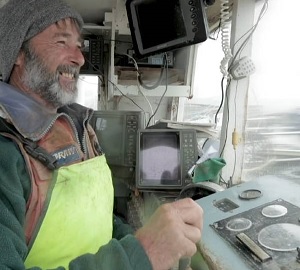
Two Hands blockchain marketing alternative to wet markets for SA southern rock lobster fishers
SA Northern Zone Rock Lobster Fishermen’s Association executive officer Kyri Toumazos said SA fishers would welcome the new system. “To some degree we are behind when it comes to product traceability and have a long way to go,” Mr Toumazas said. “Any time the consumer knows their product come from a sustainable fishery then we have a win.” He said the coronavirus pandemic had caused huge disruption for the industry, but demand had picked up and boats were back fishing off Kangaroo Island now that the northern zone season had been extended out to October 31. Perhaps the Two Hands system could help get more product on limited air freight available, he said. Video, >click to read< 08:46
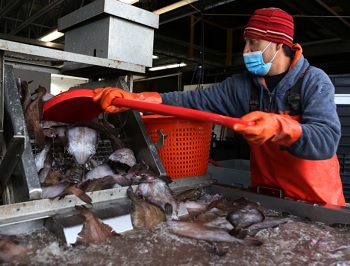
Staying Afloat: Fishermen cast for new customers amid coronavirus pandemic
The Massachusetts’ commercial fishing industry is finding new ways to stay afloat as the coronavirus pandemic has shuttered restaurants and halted seafood shipments, shaking up the normal course of business and leaving fishermen looking for customers to buy their seafood. “We had a wholesale business and like the stock market, we were up, up, up and dependable — and then all of a sudden it went away,” said Nick Giacalone,,, Restaurant closures amid the pandemic and the grounding of hundreds of planes that typically carry local seafood to overseas markets have decimated the demand globally and threatened to send prices crashing. It’s a sobering reality that has led many fishermen and related industries to tap an obvious but previously neglected market: Direct-to-consumer sales. >click to read< 07:28
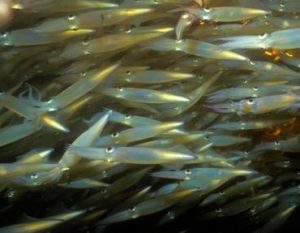
Gary Griggs – Salmon and squid
Salmon and squid both came on the radar this past week,,, These two marine animals have both shared some top billings in their importance to California’s commercial fishery in recent years, although there are significant year-to-year fluctuations. Calamari or market squid have been the number one fishery in tonnage caught, year after year… until last year. In typical years, 70,000 to 118,000 tons (118,000 is the allowable total catch) would be brought to the docks by the squid boats, making up consistently two-thirds of the entire commercial catch. >click to read< 10:46
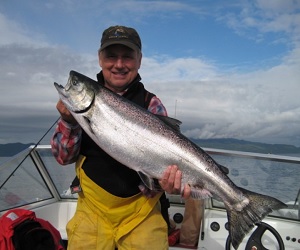
Destroying a fishery will not save Southern Resident Killer Whales – Scientists say feed starving whales farmed salmon
In less than two weeks, a Seattle-based federal judge will decide the fate of some 1,600 Southeast Alaska salmon trollers—fishermen who are already looking at the lowest allotment of Chinook in 20 years, largely due to the past three Pacific Salmon Treaty agreements that have cut, by two-thirds, their allocation of these high-value, sought-after fish. If you haven’t been following the trade press or Alaska media in the past few weeks, you may not know that this group of largely rural Alaska fishermen are today facing the unthinkable: being put out of business—collateral damage as the result of a lawsuit filed by a Washington state-based NGO, the Wild Fish Conservancy (WFC), against the National Marine Fisheries Service (NMFS). In the lawsuit, WFC seeks a Preliminary Injunction to stop the Southeast Alaska summer troll fishery, alleging that NMFS has failed to allow enough king (Chinook) salmon to return to Puget Sound to feed endangered Southern Resident Killer Whales,,, >click to read< 08:16
Feed starving whales farmed salmon, say scientists – “You could use well boats to deliver the farmed fish to where the whales feed.” >click to read<

Coronavirus: Hundreds of fish harvesters gather to protest – Concerns include low crab prices, trip limits and lack of federal funding
More than 200 fish harvesters stood side by side Saturday afternoon,,, The atmosphere was tense as protestors filled the parking lot of the Fish Food and Allied Workers Union’s headquarters in St. John’s to express their displeasure with the union’s actions on issues like low crab prices, trip limits and lack of federal funding. The crab season is slated to start Monday. “What did you do about it? F–king nothing,” one protestor yelled at FFAW President Keith Sullivan. Petty Harbour harvester Ronnie Bidgood said the union has told harvesters they are trying to get better prices, but he believes it is impossible in the current financial climate. “There is no cruise ships, there is no big restaurants, nothing is opening up, nobody is buying any shellfish,” he said. “FFAW has done nothing for us.” photo’s, video clips, >click to read< 19:11
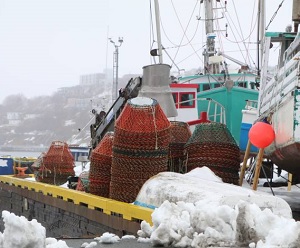
A call for patience and empathy in a fishery dealing with Coronavirus
This letter is in response to Gabe Gregory’s May 4th letter, “Fish union’s delay tactics appalling.” Contrary to Gregory’s assertions, fish-processing companies are not operating during the COVID-19 crisis under some noble sense of duty to the province or nation and they are certainly not sacrificing for the greater good. Being labelled an essential service was a relief to processing companies. It meant they could operate and bypass social-distancing, crowd-size, and travel restrictions. It meant that the companies could take full advantage of the very lucrative snow crab fishery ($500 million in 2019) and lobster fisheries ($100+ million in 2019) that would be starting while the COVID-19 pandemic would still be highly active in our country. Being an essential service also allowed them to be amongst the first in line for government subsidies. By Keith Sullivan President, FFAW, >click to read< 15:49
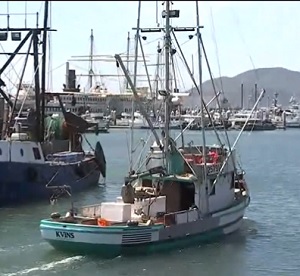
Start of salmon season gives hope to fishing industry crushed by Coronavirus pandemic
The Bay Area’s fishing industry has been devastated by the coronavirus pandemic. But, local fishing companies are hoping salmon season will help change their fortunes. The fishing industry says the closure of restaurants has been devastating. Now, they’re hoping they’ve weathered the brunt of the economic storms. The fishing industry’s fates have always been ruled by nature, but long time fishermen and distributors say there’s no way they could have seen the economic blow the coronavirus pandemic would land on their industry. video, >click to read< 14:02
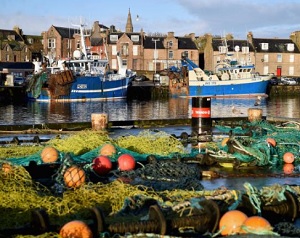
Want to start eating Scottish fish? Here are the best places to start
If Scotland really does have such fabulous seafood, why do ordinary citizens find it so hard to tap into this much eulogised catch? The problem has been that subsequent governments have fixated on international exports, not food for citizens. Farmed salmon has been the apple of their eye, even though its production has proved, to my mind, to be an environmental catastrophe for our west coast. Premium shellfish, brown crab to China, scallops to Italy, langoustines to Spain, has also been despatched abroad as soon as it was landed.,,, Enter coronavirus. Restaurant orders stopped overnight, export chains broke down. But instead of tying up boats and facing financial ruin, some determined fishermen, operating smaller boats closer to shore, have started exploring local markets,,, >click to read< 12:10
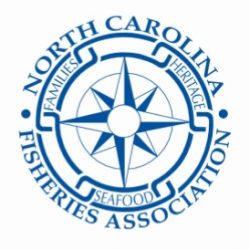
North Carolina Fisheries Association Weekly Update for May 08, 2020
Legislative updates, Bill updates, Calendar, >Click here to read the Weekly Update<, to read all the updates >click here<, for older updates listed as NCFA >click here< 11:53
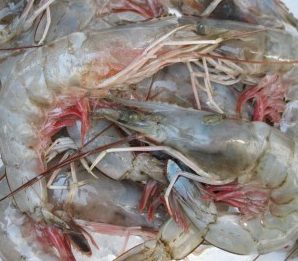
A Beautiful Combo! May 10th is Mother’s Day and National Shrimp Day!
With Mother’s Day right around the corner on May 10th and having so many of our usual Mother’s Day traditions stomped out by Covid-19, you may find yourself wondering what you can do that’s special for Mom! What’s better than taking charge of the kitchen and cooking a nice meal for her? If you are still practicing social distance you can always cook the meal and deliver it at a safe distance!What’s unique this year is that Mother’s Day falls on National Shrimp Day! Shrimp can be a delicate protein to cook so to help make this Mother’s Day as special as can be here are a few tips to ensure your shrimp comes out juicy and delicious! Tips, and recipes, >click to read< 4 Ways to Celebrate National Shrimp Day – Ready to celebrate? Check out these four delicious shrimp recipes to get started >click to read< 10:21
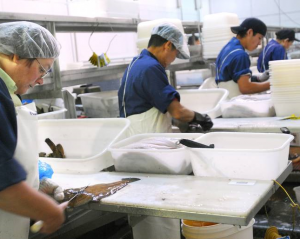
Port of Astoria: Twelve more workers test positive for Coronavirus at Bornstein Seafoods
Clatsop County reported Friday that 12 more workers at Bornstein Seafoods in Astoria have tested positive for the coronavirus, bringing the outbreak to 26. The county Public Health Department began testing workers at the seafood processor on May 2 after the company informed the county on May 1 that an employee had tested positive for the virus. Bornstein Seafoods has shut down two plants at the Port of Astoria in response to the outbreak and advised employees to self-isolate at home. The Bornstein Seafoods outbreak rippled across Astoria. >click to read< 09:25

Gulf of St. Lawrence Fishing zones closed after North Atlantic right whale sightings
The closures of the nine grids were effective Friday at 5 p.m. Fisheries and Oceans Canada had allowed a 96-hour delay of the grid closures due to the weather forecast. All of the gear affected had to be removed from the closed area before the time of closure. All gear from any fishing season that was open at the time of the closure had to be removed including snow crab, toad crab, rock crab, lobster, whelk, Greenland halibut (fixed gear) and winter flounder (fixed gear). The closures would also be in effect for Atlantic halibut (fixed gear), mackerel (gillnet) and herring (gillnet) when gear is left unattended. >click to read< 20:22
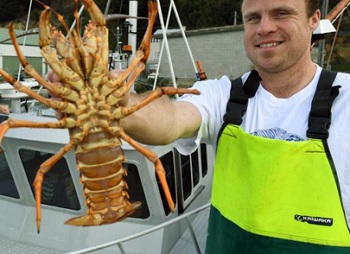
‘Not doomsday’: Commercial fishers say crayfish season looks promising
“A glimmer of light” is how Otago-based commercial fisherman Chris Cooper describes the state of the rock lobster industry — one of the first sectors to be crippled by the Covid-19 outbreak. The Chinese market closed to all rock lobster — or crayfish — exports in late January. China took 95% to 98% of all commercial crayfish landed in New Zealand. “We basically got a Dear John letter on January 24 and told there was no market. Now the market was starting to slowly open up again and Mr Cooper was pleased to be back in business, saying prices were “looking solid”. “My gut feeling is its going to be OK,maybe like last season — not a boomer, not a doomsday either. I’ve got a feeling its going to be a solid one,” >click to read< 17:49
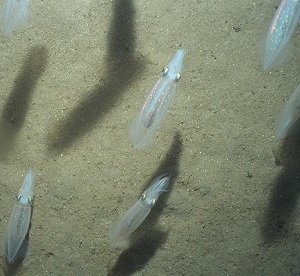
Squid Fishery Responsible for Over 2,500 Jobs, $240 Million in Economic Impact in New England and Mid-Atlantic region
Fishing for longfin squid brings in tens of millions of dollars in annual revenue and supports thousands of full-time jobs, according to a new study from the Science Center for Marine Fisheries (SCEMFIS). “Loligo squid is a significant part of our business and is also a Marine Stewardship Council-certified, sustainable fishery with its products in demand in the U.S., Europe and Asia,” said Jeff Kaelin, Director of Sustainability and Government Relations for Lund’s Fisheries, in Cape May, New Jersey. “This study shows the extent to which our fishery has grown in size and economic importance, which needs to be considered by both fishery and wind-energy regulators making decisions impacting our future.” >click to read< 16:44
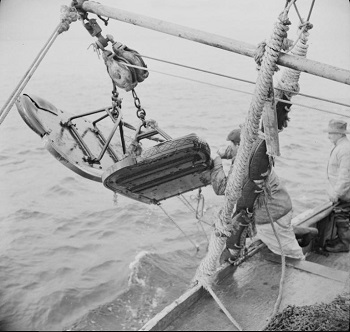
Historic photos: 1942 fishing trip off Provincetown aboard the Provincetown-based dragger F/V Francis and Marion
These amazing photos from 1942 take you aboard the Provincetown-based drag trawler Francis and Marion, fishing off Cape Cod. The trawls are constantly being repaired; while one net is down all hands turn to mending a second one. “Doors,” which when lowered, slide over the bed of the ocean like sled runners, dragging behind them the purse seine which scoops up miscellaneous fish, rocks, crabs, lobsters, and a great deal of slime. 21 photo’s >click to review< 13:07
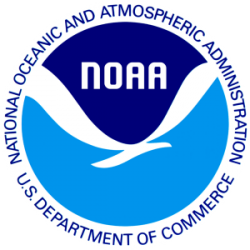
Commerce Secretary Announces $300 Million CARES Act Allocation – NOAA will disburse funds through partners
As a next step, NOAA Fisheries will use these allocations (see below) to make awards to our partners—the interstate marine fisheries commissions, Puerto Rico, and the U.S. Virgin Islands—to disburse funds to address direct or indirect fishery-related losses as well as subsistence, cultural, or ceremonial impacts related to COVID-19. “We are going to rely primarily on our partners at the interstate marine fishery commissions during the award process because they have a demonstrated track record of disbursing funds provided to them quickly and effectively,” said Chris Oliver, Assistant Administrator for NOAA Fisheries. Read the Summary of Allocations, and review the question and answer section. Q. Who should affected fishermen and communities contact about accessing this funding? >click to read< 11:00

A miraculous turn of events – Michael Moore and Driessen agree! Wind, solar and biofuel energy are devastating Planet Earth
Never in my wildest dreams did I envision a day when I’d agree with anything filmmaker Michael Moore said – much less that he would agree with me. But mirabile dictu, his new film, Planet of the Humans, is as devastating an indictment of wind, solar and biofuel energy as anything I have ever written. The documentary reflects Moore’s willingness to reexamine environmentalist doctrine. It’s soon obvious why more rabid greens tried to have the “dangerous film” banned. Indeed, Films for Action initially caved to the pressure and took Planet off its website, but then put it back up. The film is also on YouTube. >click to read< 10:04
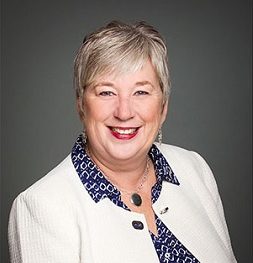
Coronavirus: Atlantic Canada’s fishing industry calls on feds for help
Crab and lobster fisheries throughout Atlantic Canada have faced delayed season openings due to fears about the coronavirus spreading in small communities and close working conditions. A significant drop in prices due to a collapse in retail and restaurant markets in the United States, Japan and China, major export markets for Canada’s seafood, overshadow the start of the season for many. Responding to a question during Tuesday’s virtual House of Commons meeting, Fisheries Minister Bernadette Jordan said support for the industry would be announced in the coming days, but by Thursday no additional details were available. >click to read< 09:09
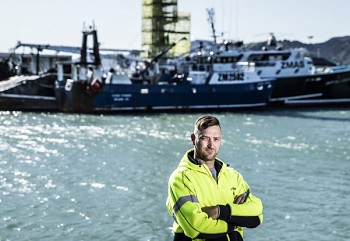
Nelson-based fishing crews adrift from Coronavirus during lockdown
The crew of Nelson-based fishing vessel Ocean Pioneer has spent the last nine weeks in a boat bubble, catching scampi on the Chatham Rise as the world was changed by Covid-19. Skipper Blair Alderson and his crew of five deckhands and a chief engineer departed Nelson two weeks’ prior to the March 26 level 4 lockdown.,, Damage to the boat’s television dome on the second day of the first trip restricted their news updates to emails from home and chatter with other boats in the vicinity. The crew were able to truly grasp the lockdown situation when they unloaded their first catch at Port Nelson in the midst of level 4 lockdown. >click to read< 07:52

Video: Coast Guard set out to rescues 3 people, dog from a capsized fishing vessel offshore Apalachicola, Florida
The Coast Guard rescued three people and a dog from a capsized fishing vessel offshore Apalachicola, Florida, Thursday. All passengers aboard, including the dog, were rescued and no injuries were reported. Watchstanders at Coast Guard Sector Mobile received a report at approximately 11 a.m. that the 64-foot fishing vessel Pete’s Dream was taking on water about 70 nautical miles offshore Apalachicola, Florida, with three people and a dog aboard. In the process of launching rescue assets, Sector Mobile received an additional report that all three people and the dog abandoned ship and boarded a life raft. One of the passengers was able to use a satellite phone to communicate to shore. Video, >click to read< 21:17

President Donald J. Trump Executive Order Promoting American Seafood Competitiveness and Economic Growth
By the authority vested in me as President by the Constitution and the laws of the United States of America, and in order to strengthen the American economy; improve the competitiveness of American industry; ensure food security; provide environmentally safe and sustainable seafood; support American workers; ensure coordinated, predictable, and transparent Federal actions; and remove unnecessary regulatory burdens, it is hereby ordered as follows: DONALD J. TRUMP, THE WHITE HOUSE, May 7, 2020. >click to read<
President Donald J. Trump Is Working to Secure America’s Seafood Supply Chain and Bring Jobs Home – >click to read< 17:54
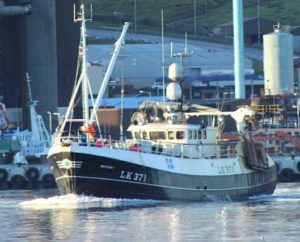
Shetland fishermen against Brexit transition period extension
In the light of the Covid-19 crisis and the deep recession forecast for 2020, Liberal Democrats and the SNP have been lobbying for an additional delay before the UK leaves the EU. But Simon Collins, the SFA’s executive officer, said that as far as he could see there was “not much appetite within the government to extend”, and fishing was a special case anyway. “Whatever decisions are being made for other parts of the economy, for which we can’t speak, as far as fishing is concerned our stance is absolutely clear: we have every intention to push the government to deliver, at least for fishing, that we are an independent coastal state by the end of the year. >click to read< 15:46
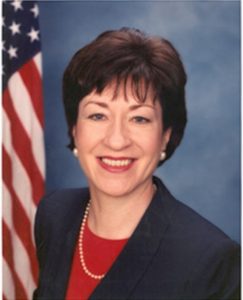
CARES Act : Maine’s cut of $300 million in federal seafood industry funding is nation’s fifth-highest.
Maine is in line to get $20 million to help its battered seafood industry weather the COVID-19 storm. The award, announced Thursday by U.S. Sen. Susan Collins, R-Maine, comes out of the $300 million in federal funding included in the CARES Act to help the U.S. fishing industry survive the economic losses associated with the coronavirus pandemic. Maine’s award was the fifth-highest out of 31 states. Commissioner Patrick Keliher said Thursday that he was only just learning about the award and would not be making any comments about distribution plans, , or priorities, until he received specific guidance from the NOAA. >click to read< 13:44
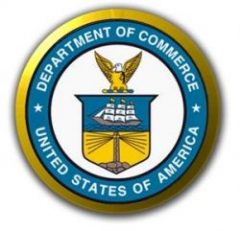
U.S. Department of Commerce Announces Availability of $1.5 Billion in CARES Act Funds to Aid Communities Impacted by the Coronavirus Pandemic
U.S. Secretary of Commerce Wilbur Ross today announced that the Department’s Economic Development Administration (EDA) is now accepting applications from eligible grantees for Coronavirus Aid, Relief, and Economic Security Act (CARES Act) supplemental funds (EDA CARES Act Recovery Assistance) intended to help communities prevent, prepare for, and respond to coronavirus.,, On March 27, 2020, President Donald J. Trump signed the $2 trillion CARES Act into law. The CARES Act provides EDA with $1.5 billion of which $1.467 billion is available for grant making. The remaining funds will be transferred to cover salaries and expenses and oversight activities. >click to read< 12:54






